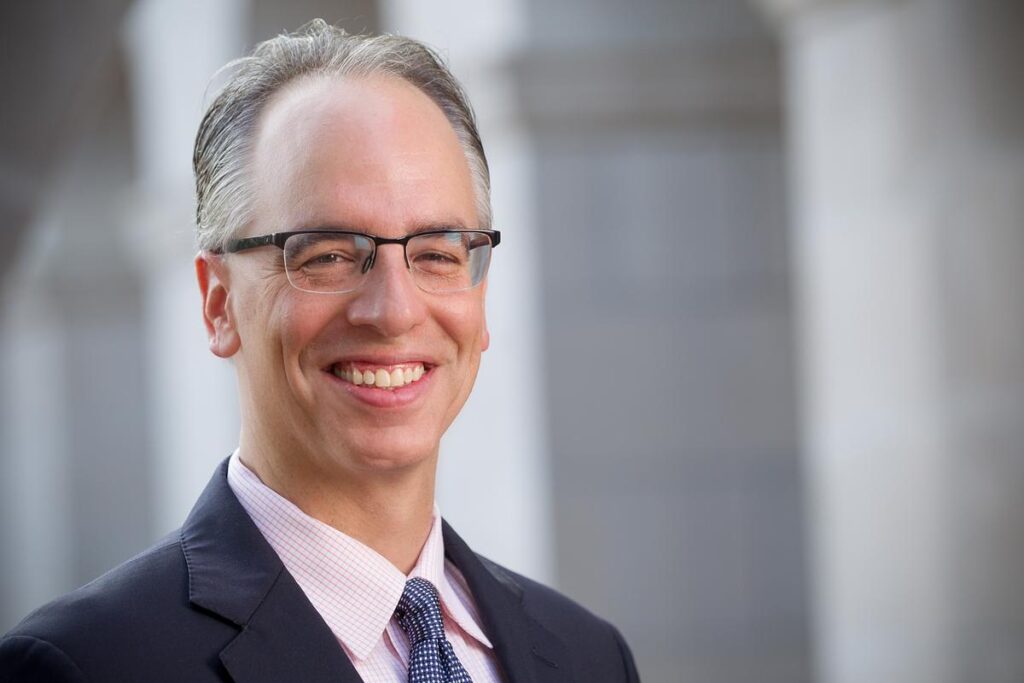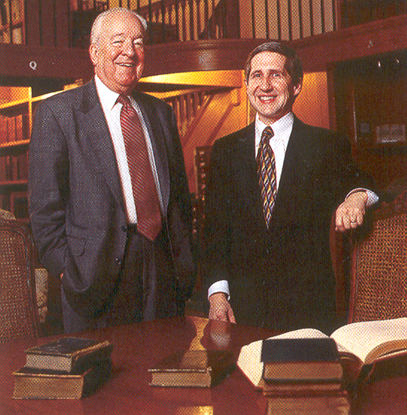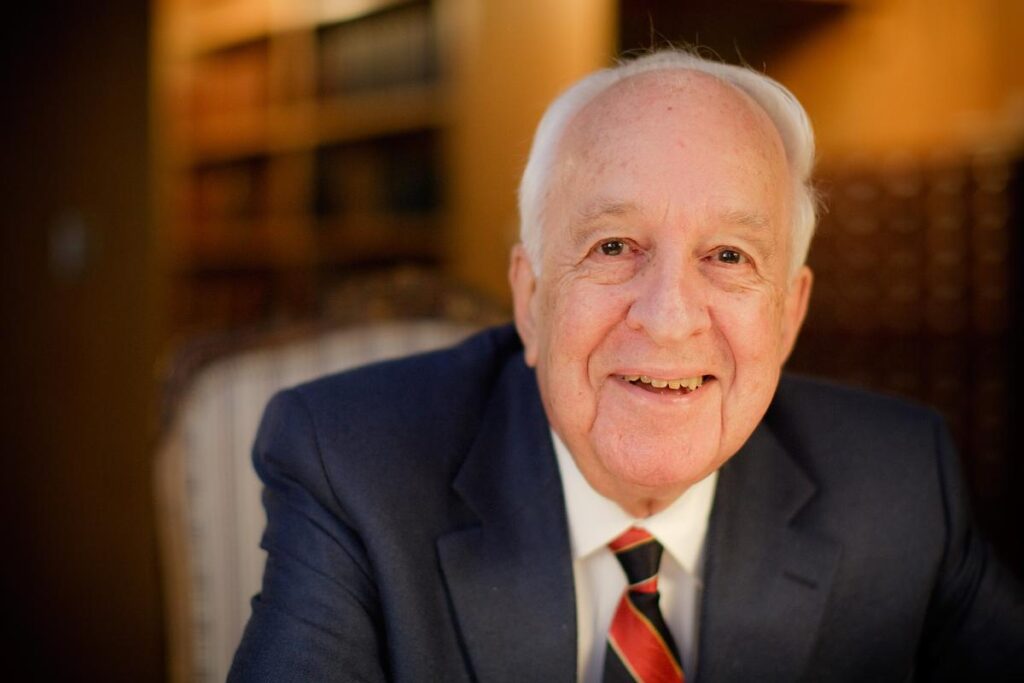Past Provosts
A Look Back: Celebrating the Leadership of Wake Forest University’s Provosts
Prior to the tenure of interim Provost Nell Newton, Wake Forest witnessed the leadership and vision of eight remarkable Provosts who each left an indelible mark on the University, helping it become the beacon of academic excellence that it is today.
Michele Gillespie (2022-2025)

Michele Gillespie served as Provost of Wake Forest University from July 1, 2022, to July 31, 2025. A respected historian and experienced academic leader, she helped shape the University’s academic priorities and position it for the future. As Provost, Gillespie led the development of Wake Forest’s academic Strategic Framework, recruited four academic deans, and reorganized the Graduate School of Arts and Sciences to better serve students and faculty. Previously, she served seven years as Dean of the College, where she led a comprehensive core curriculum review and launched key academic programs, including Wake Downtown, the Wake Washington Program, and new interdisciplinary majors in Environment and Sustainability, African American Studies, Engineering, and Biochemistry and Molecular Biology. Gillespie joined the Wake Forest faculty in 1999. She was named Kahle Associate Professor in 2004, Associate Provost in 2007, and Presidential Endowed Chair of Southern History in 2013. A scholar of the American South, she is the author of several acclaimed books and an award-winning teacher. Following her tenure as Provost, she returned to the faculty as Presidential Endowed Professor of Southern History, continuing her service to Wake Forest as a teacher, scholar, and mentor.
Rogan T. Kersh (2012-2022)

Rogan T. Kersh received his B.A. from Wake Forest in 1986, and returned as provost and professor of political science in July 2012. Prior to arriving at WFU, Kersh was associate dean of NYU’s Wagner School of Public Service, where he was professor of public policy. Kersh has published three books, on American political history and on health policy; a new edition of his By the People: Debating American Government (with James Morone) was published in 2017 by Oxford University Press. He has published over 50 academic articles, and does frequent media commentary on U.S. politics and on the ‘Millennial’ generation. He has been a Mellon Fellow in the Humanities, a Luce Scholar, a Robert Wood Johnson Fellow, and is an elected Fellow of the National Academy of Public Administration. As Provost at Wake Forest, Kersh played a pivotal role in the enhancement of academic programs, the introduction of innovative curricular initiatives, and the strengthening of community partnerships. In 2022, Kersh stepped down as Provost and is now a Distinguished University Professor.
Mark E. Welker (2011-2012)

Dr. Mark Welker, a distinguished chemist, has served Wake Forest University with dedication and excellence in numerous roles. In addition to his significant contributions as a faculty member in the Chemistry Department, Dr. Welker took on leadership responsibilities, including serving as the interim Provost. His research in the field of chemistry has been recognized nationally, and he has authored and co-authored numerous publications. Throughout his tenure at Wake Forest, Dr. Welker’s commitment to academic rigor, research excellence, and institutional growth has left a lasting impact on the university community.
Jill M. Tiefenthaler (2007-2011)

Dr. Jill M. Tiefenthaler is recognized for her dynamic leadership in higher education. As an economist by training, Dr. Tiefenthaler’s research has centered on labor economics, with a focus on the economics of the family. Her academic journey and administrative prowess have shaped her approach to institutional leadership, emphasizing both academic excellence and community. At Wake Forest, her tenure as Provost was marked by her commitment to academic innovation, faculty support, and holistic student development—redesigning the admissions process to include an SAT-optional policy, integrating the university’s undergraduate and graduate business schools, establishing the Institute for Public Engagement and The Humanities Institute, and implementing “Living Our Values,” a plan to strengthen residential life and campus vibrancy. After serving as the Provost of Wake Forest University, she held the esteemed position of President at Colorado College for nine years. In 2020, she became the first female CEO of the National Geographic Society.
William (Bill) C. Gordon (2002-2007)

William “Bill” C. Gordon, a revered alumnus of Wake Forest University, entered the institution in 1964 on a baseball scholarship, later diving deeply into academics and student leadership after an injury. Recognized as the “Man of the Year” by the Old Gold and Black in 1968, Bill earned his undergraduate and master’s degrees from Wake Forest and subsequently, a Ph.D. from Rutgers University. His academic path led him to significant roles at the University of New Mexico, culminating as its President in 1999. Bill returned to Wake Forest as Provost in 2002, briefly serving as Acting President in 2004. During his tenure, he worked effectively to advance academic life and to stabilize the financial structure of the University and played key roles in the 2006 accreditation process and the ongoing work of strategic planning under President Nathan Hatch. After stepping down in 2007, Bill began teaching in the psychology department where he remained until his retirement in 2012.
Samuel T. Gladding & Edwin G. Wilson (1998-2002)

Instead of searching for a new Provost immediately after Brown stepped down, President Thomas K. Hearn announced that Brown’s duties would be split. Ed Wilson, Wake Forest’s only provost prior to Brown’s appointment, became Senior Vice President, charged with academic administration of the college, the Law School, the Calloway School of Business, the Babcock School of Management, the Graduate School, and the fledgling Divinity School. Sam Gladding, who had been Assistant to the President for Special Projects since 1990, became Associate Provost and oversaw the academic support offices, specifically Undergraduate Admissions, Financial Aid, Research and Sponsored Programs, Institutional Research, the Registrar, the Secrest Artists Series, and International Studies, in cooperation with Dean of the College Paul Escott.
Samuel T. Gladding
A distinguished figure in the field of counseling, Dr. Samuel T. Gladding made an indelible mark on both academic and professional landscapes. As a professor at Wake Forest University, his teachings inspired countless students, fostering a deep understanding and appreciation of counseling principles. Authoring numerous publications, including influential textbooks, Dr. Gladding’s work was pivotal in shaping contemporary counseling practices. Beyond academia, his leadership roles in national and international counseling organizations highlight his dedication to advancing the profession. His expertise, spanning topics from group counseling to arts in counseling, positions Dr. Gladding as a revered thought leader in his field.
David G. Brown (1990-1998)

David G. Brown distinguished himself as an academic luminary, with his educational foundation rooted in a B.A. with Honors in Economics from Denison University and both M.A. and Ph.D. in Economics from Princeton University. His illustrious career spans roles ranging from an economics professor at the University of North Carolina at Chapel Hill to leadership positions such as the Provost at Drake University, President of Transylvania University, and Chancellor of UNC-Asheville. As the Provost of Wake Forest University, Brown introduced visionary initiatives like the Spires of Excellence program and was the driving force behind “The Plan for the Class of 2000”, aimed at elevating undergraduate learning experiences through new technology, additional faculty, introduction of First Year Seminars and more. Recognizing the future of digital education, he also spearheaded the International Center for Computer-Enhanced Learning (ICCEL), a collaboration with IBM. Beyond his direct institutional roles, Brown’s influence extends to national academic groups, including chairing the American Association for Higher Education and founding the Annual Conference on Ubiquitous Computing.
Edwin G. Wilson (1967-1990)

Edwin Graves Wilson, affectionately known to many as “Mr. Wake Forest,” served Wake Forest University with unparalleled dedication for decades. Born in 1923, Wilson began his journey with WFU as an undergraduate student and then returned as a faculty member in the English department in 1951. He held various esteemed positions throughout his tenure, including the Dean of the College. But it was as Provost from 1967 to 1990 that his leadership greatly influenced the university’s academic growth and direction. Beyond his administrative roles, Wilson’s love for literature and teaching remained evident, as he continued to teach and inspire countless students. His unwavering commitment to the university’s values, coupled with his warmth and wisdom, has left a legacy that continues to resonate within the Wake Forest community.
